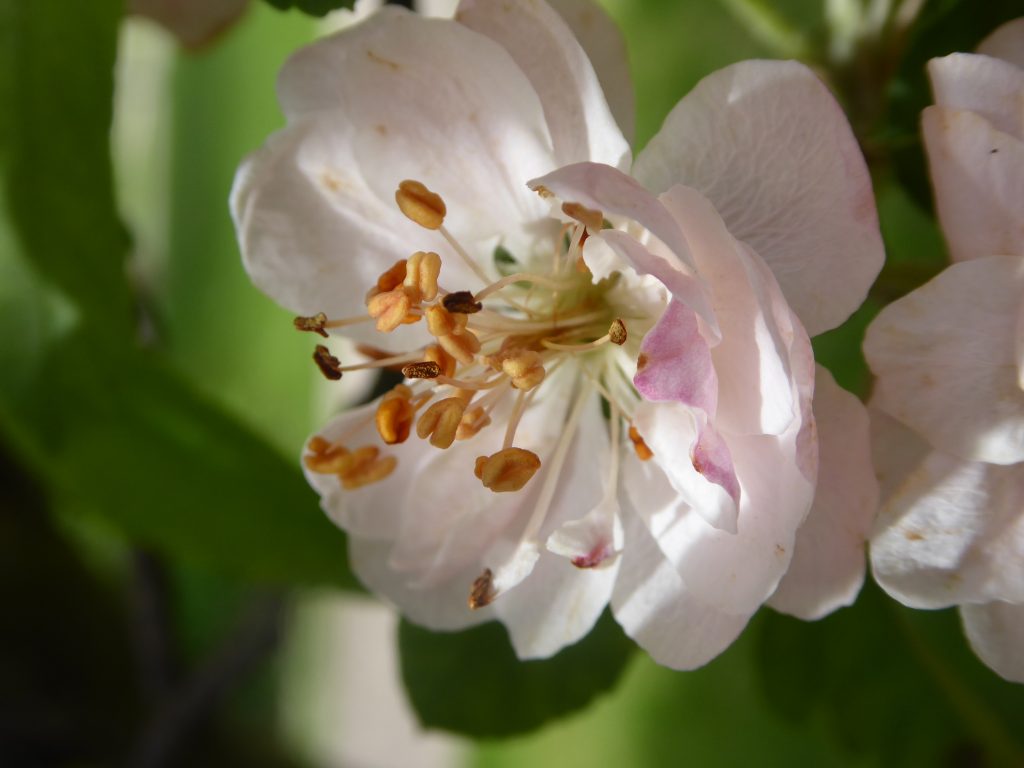May 8, 2018 // Perspective
Growing in grace: spiritual motherhood
Most women have an innate call to motherhood within their very being. This vocational reality can be demonstrated through a variety of ways, each one as unique as the woman growing into it.
With the eyes of faith, this reality can truly blossom and flourish, especially when connected to the very life of its creator, God. Jesus, the vine, sustains such spiritual life as the Holy Spirit renews and refreshes the call to motherhood in each stage of a woman’s life. A woman’s own spiritual motherhood springs forth from the love of the Trinity.
 The beautiful call to spiritual motherhood begins when a girl is still very little. The inclinations towards receptivity and openness to new life highlight this vocation. Both attributes can be practiced through every stage of her life, from birth to natural death, as she prepares for eternal life.
The beautiful call to spiritual motherhood begins when a girl is still very little. The inclinations towards receptivity and openness to new life highlight this vocation. Both attributes can be practiced through every stage of her life, from birth to natural death, as she prepares for eternal life.
Each stage of a woman’s spiritual motherhood holds a beauty all its own. A baby first begins this vocational journey by coming to awareness of herself, her role in the world and relationship with God. A toddler can then learn how to be nurturing and grow new life by turning away from self and towards others. In everyday life this can look like meeting and developing new friendships, or as simple as growing plants and flowers in a garden.
A young girl, learning how to be a good friend, growing in relationship with others, practices and observes mothers around her. As a teenager, she could blossom further in continuing to deepen her interior prayer in relationship with God and exteriorly in service to her family and community.
As a young lady her second vocational choice often becomes clearer. She discerns religious, consecrated single or married life, all the while developing her natural, spiritual motherhood in her everyday work. For example, a young woman serving professionally as a high school teacher might pray for and speak with her students, with whom she is entrusted to care for in a particular way.
 As she grows in experience and wisdom, a woman in her young adult life might then physically raise, care for, foster, adopt, pray for, or bear children, all the meanwhile nurturing them in her maturing vocation as mother. A blossoming woman in menopausal years might nurture younger women as they look for God and grow in friendship with other motherly figures as Christian examples. A spiritual mother is aware of the hunger and needs around her and knows how to care and feed her children.
As she grows in experience and wisdom, a woman in her young adult life might then physically raise, care for, foster, adopt, pray for, or bear children, all the meanwhile nurturing them in her maturing vocation as mother. A blossoming woman in menopausal years might nurture younger women as they look for God and grow in friendship with other motherly figures as Christian examples. A spiritual mother is aware of the hunger and needs around her and knows how to care and feed her children.
A retired woman, aware of the gift of time she holds, could offer her spiritual fruits to her parish, planting the seeds of faith as a catechist or leading retreats. I’ve experienced an older woman sharing her spiritual motherhood with others through spiritual direction and graced centering prayer. Senior women can offer their motherhood in great depth of intercessory prayer and faithful reception of the sacraments.
The journey of spiritual motherhood continues even later and longer into eternal life! St. Thérèse of Lisieux mentions this when she told her fellow sisters, “I will be of more use in heaven than I am here. I want to spend my heaven doing good on earth.” She was and is so full of divine life that the fruits of her spiritual motherhood continue to this day.
St. Thérèse said, “I understand that love includes all vocations. I realize that all my desires are fulfilled. I have found my vocation. In the heart of the Church, my mother, I will be love.” There is indeed an appropriate and fruitful way to live one’s spiritual motherhood in every stage of a woman’s life.
 Often, as Americans, we think of motherhood simply in terms of procreation, of the physical nature of a mother’s womb or caring for one’s own children. This is obviously true, beautiful, needed and important in Catholic family. However, the richness, depth and truth of motherhood goes beyond that of actual birth, even for women who have physically had children themselves. Religious communities of women, although celibate, know the reality of spiritual motherhood well. They often call their religious superior “Mother,” highlighting this fact.
Often, as Americans, we think of motherhood simply in terms of procreation, of the physical nature of a mother’s womb or caring for one’s own children. This is obviously true, beautiful, needed and important in Catholic family. However, the richness, depth and truth of motherhood goes beyond that of actual birth, even for women who have physically had children themselves. Religious communities of women, although celibate, know the reality of spiritual motherhood well. They often call their religious superior “Mother,” highlighting this fact.
The Gospel of John speaks of this new life coming forth in a different manner than one might imagine. “Participation in the divine life arises “not of blood nor of the will of the flesh nor of the will of man, but of God” (Jn 1:13). The Catechism of the Catholic Church highlights this passage as it speaks of the spiritual motherhood of all people, following the example of Mary.
Mary is the physical mother of Jesus, albeit through divine conception, and too is the spiritual mother of every person. We all have at least two mothers, if not more; she who conceived, carried, labored and bore us, and Mary, who was with our physical mother every moment of that pregnancy. The Catechism explains this as “Jesus is Mary’s only son, but her spiritual motherhood extends to all men whom indeed he came to save: ‘The Son whom she brought forth is he whom God placed as the first-born among many brethren, that is, the faithful in whose generation and formation she cooperates with a mother’s love’” (CCC 501).
This is very healing and vital to those who might have a difficult or no relationship with their physical mother, as well as for those women who struggle being mothers themselves. Asking and trusting in Mary’s intercession can develop within us this vocational call, which might have been hurt or wounded. St. Maximilian Kolbe reminds us, “Never be afraid of loving the Blessed Virgin too much. You can never love her more than Jesus did.”
 As in life, bareness or infertility can also be present in periods of our spiritual motherhood. Our own family and friends, as well as our spiritual relatives Hannah and Elizabeth in the Bible, have all experienced such pain. Mary herself was present, but remained quiet, through such suffering with Jesus at the foot of the cross. A response of faith in the midst of such darkness, such as Mary’s in the Magnificat “Behold, I am the handmaid of the Lord …” is an acknowledgment of the existing spiritual motherhood. To know that one’s womb is empty points to the realization of the existence of the womb itself, and the vocational call to be a spiritual mother.
As in life, bareness or infertility can also be present in periods of our spiritual motherhood. Our own family and friends, as well as our spiritual relatives Hannah and Elizabeth in the Bible, have all experienced such pain. Mary herself was present, but remained quiet, through such suffering with Jesus at the foot of the cross. A response of faith in the midst of such darkness, such as Mary’s in the Magnificat “Behold, I am the handmaid of the Lord …” is an acknowledgment of the existing spiritual motherhood. To know that one’s womb is empty points to the realization of the existence of the womb itself, and the vocational call to be a spiritual mother.
St. John Paul II wrote in “On the Dignity and Vocation of Women:” “The moral and spiritual strength of a woman is joined to her awareness that God entrusts the human being to her in a special way.”
This Mother’s Day might be a special opportunity to ask God and discuss in prayer what your vocation as a spiritual mother looks like this year. How might He be offering new life to be born of you? How could you open yourself to be receptive to His call, growing new life and bear it with your nurturing self? May our own mother, Mary, standing with you, love you through it all.
The best news. Delivered to your inbox.
Subscribe to our mailing list today.






